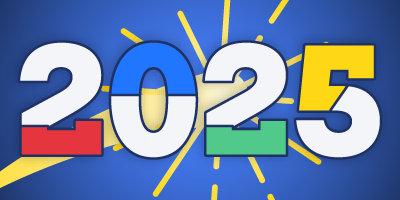


If you're a serious chess player, those 64 squares probably feel like home, where logic, calculation, and planning ahead are everything. So what happens when you leave the chessboard behind and try sitting down at a bridge table?
At first glance, bridge and chess look totally different. Chess is just you versus your opponent with all the pieces visible. Bridge? You're working with a partner, most of the cards are hidden, and there's this whole bidding language thing going on. But here's the thing, for chess players, bridge can feel like meeting a long-lost cousin. It's got that same depth you love, but throws completely new challenges at you.
Want to see what this transition actually looks like? Check out this chess player's real experience making the switch here.
The biggest difference when you start playing bridge is going from seeing everything to seeing… well, not much. In chess, you know exactly what your opponent has, where every piece is, what threats are coming. Bridge introduces you to this fascinating world where three-quarters of the cards are hidden from you.
It's actually pretty exciting once you get used to it. Your chess brain already loves calculating exact lines and finding the "right" move through analysis. In bridge, you get to apply that same analytical thinking to probabilities and deduction. You don't know if your opponent has the ace of spades, but you can figure out how likely it is based on the bidding and what cards have been played. It's like being a detective with mathematical skills.
Even more interesting than the hidden information is having a partner. Chess is gloriously solitary, you win or lose based on your own play. Bridge gives you a teammate who can help execute complex strategies and cover for your weaknesses.
The bidding part is like learning a precise language for tactics. In chess, you can sit there for twenty minutes thinking about a position. In bridge, you've got seconds to communicate complex information about your hand using this elegant vocabulary of bids. You quickly learn that sometimes the "right" play isn't the theoretically best one—it's the one your partner expects. This teamwork aspect adds a psychological dimension that makes every hand feel fresh and dynamic.
Your chess background gives you a huge head start. The strategic thinking carries over beautifully, concepts like tempo, taking initiative, and managing resources work in both games. Being good at spotting patterns helps with both the card play and learning bidding systems.
Chess has already trained you to think several moves ahead, which is exactly what bridge rewards. You're comfortable with complex analysis, and bridge just gives you new types of problems to solve. The social side is also easier than you'd think, chess clubs are usually quiet and thoughtful, while bridge clubs buzz with conversation and hand discussions that actually accelerate your learning.
Learning bridge actually makes you better at chess. Making decisions when you don't have all the info improves your practical play when you're short on time. The psychological aspects of bridge help you read opponents better across the chessboard. Most importantly, bridge shows you there are tons of different ways to think strategically, and being exposed to different approaches makes you better at all of them.
It's not a coincidence that some of the smartest people , from world chess champions to mathematicians get hooked on bridge. The game gives you rich opportunities to master something, compete, and keep growing intellectually.
And unlike chess, bridge never really gets "solved." Even the best players have to keep learning. Systems change. Opponents surprise you. Your partner and all their quirks are always part of the equation.
For a chess player, bridge isn't replacing anything, it's opening up a whole new world. It's a different battlefield with different rules and different rewards.
Learning bridge as a chess player means discovering the excitement of teamwork, the satisfaction of solving puzzles with incomplete information, and a totally different kind of strategic thinking. It means finding new ways to use your analytical skills and discovering the fun in working with a partner.
But most of all, it means discovering that loving games, deep, thoughtful, endlessly fascinating games doesn't have to stop at one board.
If you're a chess player thinking about trying bridge, here are some great places to start:
Making the jump from chess to bridge is tough but totally worth it. Both games offer lifelong learning journeys, and getting good at one definitely helps you appreciate the other even more.




Bridge >> chess
Concordo pienamente con tutto l'articolo, grazie!
Concordo assolutamente con tutto quanto afferma questo articolo. Sono sia un bridgista che uno scacchista, mi diverto molto con entrambi i giochi che amo anche se il mio livello è di intermedio appena sufficiente. Buon gioco a tutti, ciao!
Great!!
!